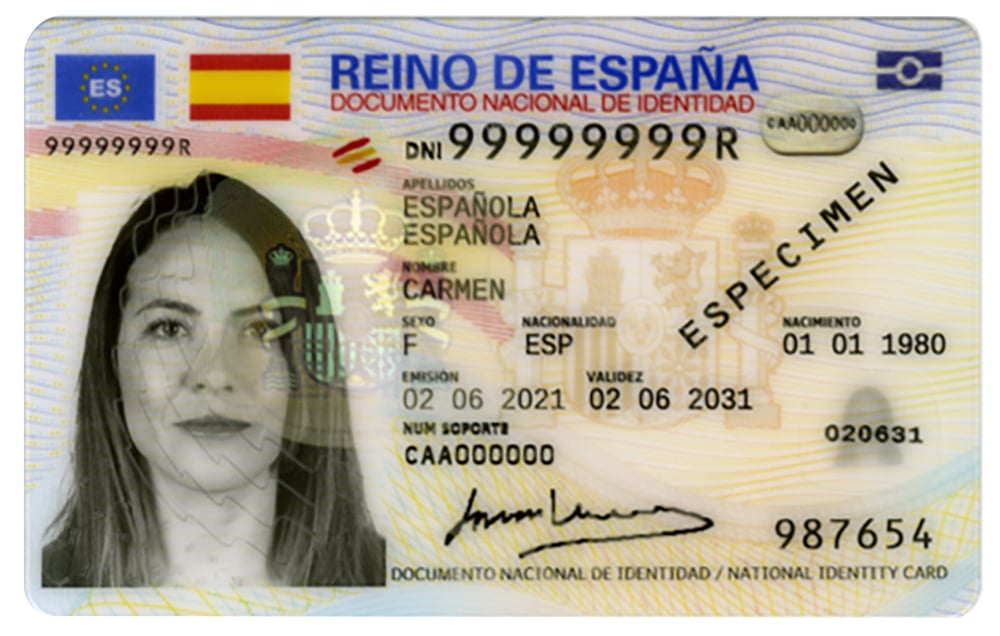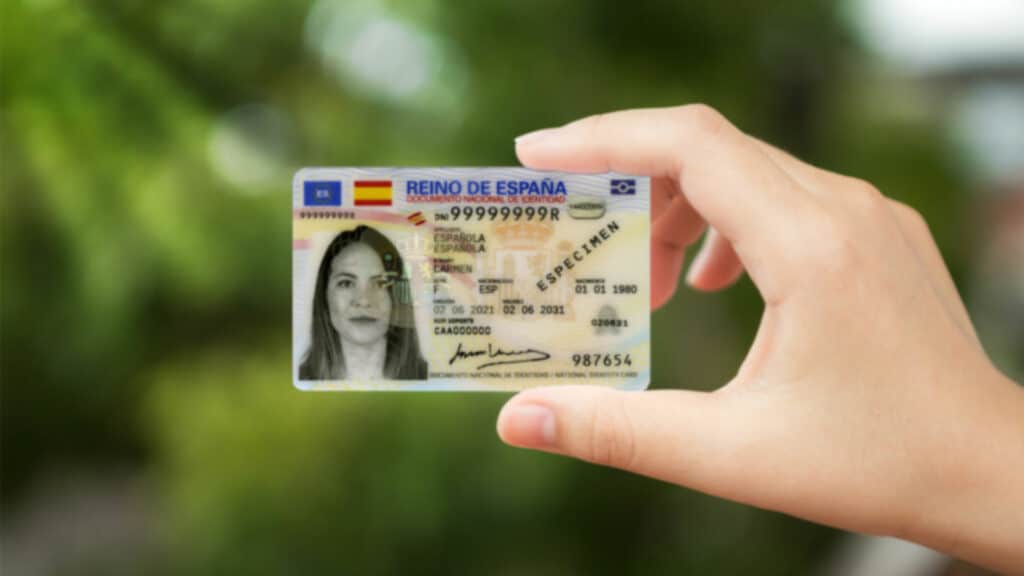Introduction
The new Spanish ID card (version 4.0) is already within our exhaustive coverage of the identification of identity documents. In this way, we consolidate our position as a leading technology company by supporting the new evolution of this electronic ID card from its very entry into force.
The new Spanish ID card joins the extensive global document coverage offered by Veridas, which already includes more than 400 identity documents, driving licenses, and residence permits from more than 150 countries, in addition to all ICAO passports. A genuinely differential and market-leading coverage that is allowing us to serve customers globally.
This evolution of the Spanish ID card, which will begin to be issued this summer throughout Spain, is adapted to European Union legislation on digital identity (EU Regulation 2019/1157 of the European Parliament and the Council of June 20, 2019).
Thanks to our automatic capture and recognition of the ID card and the ultra-fast obtaining of all its readable data (OCR extraction) powered by Artificial Intelligence, from Veridas, we offer a differential document verification solution, complemented with an advanced document authenticity validation that includes an analysis of physical parameters of the document and anti-fraud techniques, such as color photocopy detection, screen attack detection, or photo replacement detection, among others.

Central new security and privacy features of Spanish ID Card
All the new features incorporated in the new Spanish ID card, detailed below, are already included in the document verification software developed by Veridas.
This new version of the Spanish ID card, like its predecessor, the version 3.0, comes with NFC (Near Field Communication), which makes it possible to identify the identity of users through an electronic device. In addition, the new DNI 4.0 complies with LDS2 passport requirements and is optimized to meet EU-regulated interoperability and security certifications.
One of the most notable new features is the native digital version of the ID Card, which will be just as valid as the physical version, as is already the case with the driver’s license. The Police are developing a mobile app in which Spanish citizens will have their official ID card, so it will no longer be necessary to carry the physical document.
However, perhaps one of the most critical factors of this new Spanish ID card is the storage of fingerprints and facial data as biometric data of citizens. This is one of the new additional security measures that make the version 4.0 a more secure document and more difficult to forge. These biometric data will soon be used for biometric identification in issuing the ID card itself and the electronic passport.
The new Spanish ID card is a comprehensive technical improvement project that will allow citizens to enjoy more guarantees.
Fernando Grande-Marlaska (Ministro del Interior, Gobierno de España)


GDPR privacy in document verification
Our technology is developed, patented, and put into production under the criteria to comply with the GDPR and the eIDAS Regulation.
Both regulations establish a common legal framework for trust services and electronic identification means in the European Union (eIDAS), as well as regulation regarding the protection of natural persons with regard to the processing of their personal data and the movement of such data (RGPD).
Photo source: DNIelectronico.es



